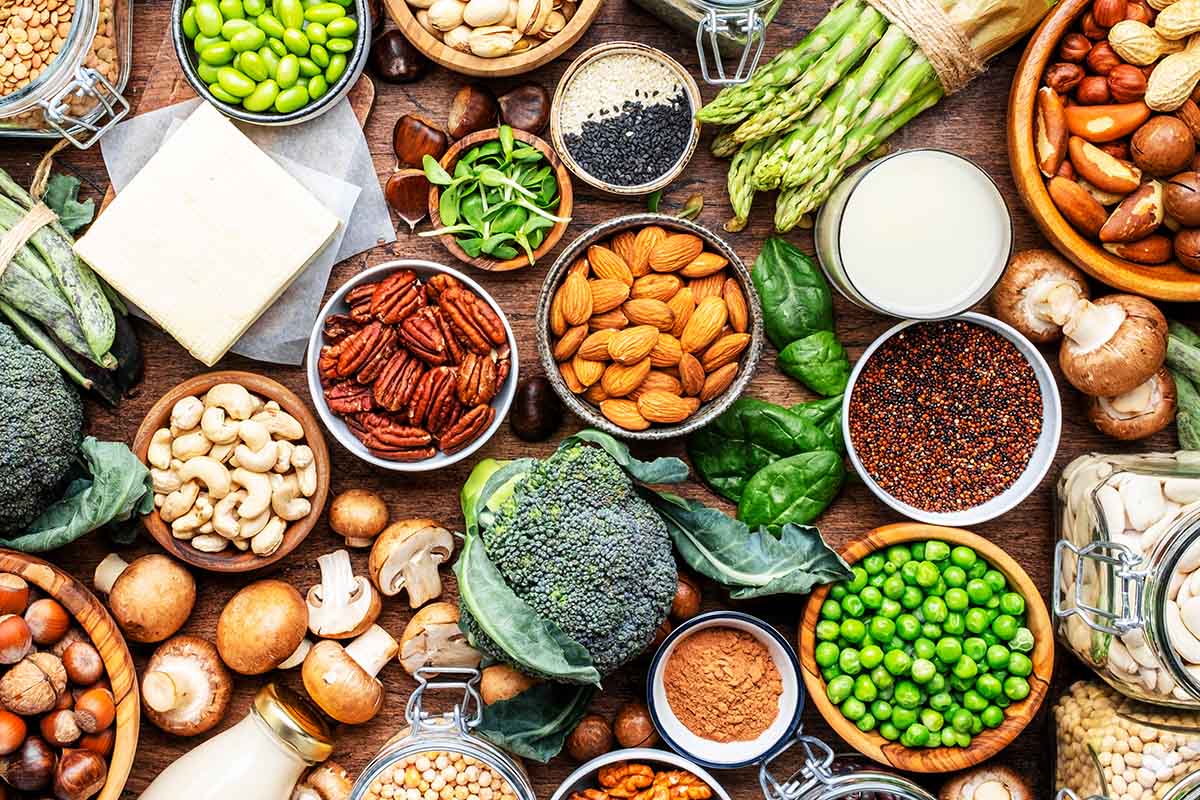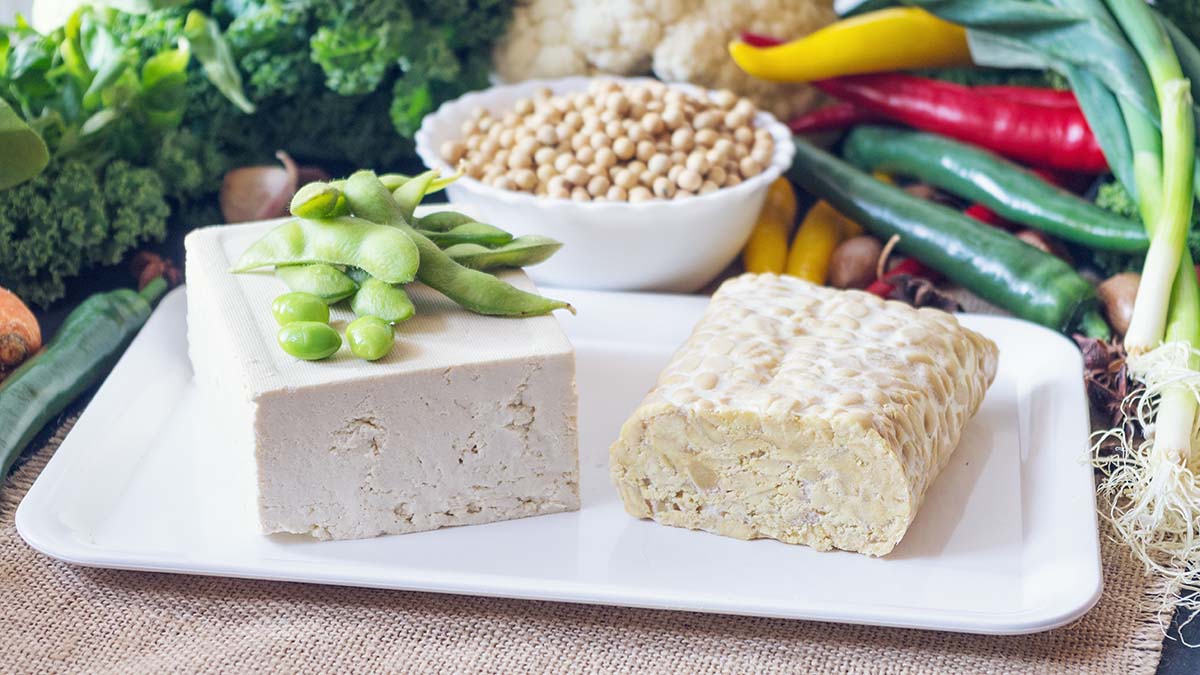Why You Should Be Prioritising Protein In Perimenopause According to a Nutritionist

Menopause is defined by twelve consecutive months without menstruation, marking the natural end of our reproductive years1. In the UK, the average age for menopause is 512. However, many experience perimenopause—the transitional period before menopause—between the ages of 45 and 552, though it can begin as early as the late thirties and early forties.
During perimenopause, the amount of estrogen in a woman’s body is usually 20-30% higher than it was before perimenopause and the level of estrogen fluctuates unpredictably1.
At the same time, your progesterone levels steadily decrease and can plummet further if you’re dealing with high stress, creating a hormonal rollercoaster. Symptoms vary among women but often include hot flashes, insomnia, night sweats, mood swings, weight gain, brain fog, and low libido.
You might be wondering, what does protein have to do with all this?
The good news is that even small dietary changes, especially focusing on increased protein intake, can significantly impact the frequency and severity of these perimenopausal symptoms. Researchers suggest that the body’s protein requirements increase during perimenopause due to hormonally-induced tissue protein breakdown3.
If these needs aren’t met, women may consume excess calories from other sources in what is known as the Protein Leverage Effect, which can contribute to weight gain during perimenopause3. This brings us to our first point about why protein becomes particularly important during perimenopause…

Weight Management
Protein is more satiating than fats and carbohydrates, helping you feel fuller for longer. According to Lauren Curtain, a Chinese Medicine Practitioner, women’s metabolism also undergoes changes during perimenopause and menopause, often tending more towards metabolic dysfunction. Energy expenditure typically decreases during menopause, owing to the loss of ovarian function and decreases in muscle mass4.
Curtain suggests that emphasising protein intake can assist with supporting metabolism. Protein coupled with resistance exercise helps preserve muscle mass, which is important for maintaining metabolic rate and physical strength5. Incorporating more protein into your meals can help control appetite and reduce overall calorie intake.
Improved Mood
Protein breaks down into glucose more gradually than carbohydrates and fats.
When you consume foods high in refined carbohydrates, your blood sugar levels can spike rapidly, leading to a surge of energy and feelings of euphoria. However, what goes up must come down, and these blood sugar highs and lows can cause significant mood swings.
The initial spike can make you feel hyper and upbeat, but as your blood sugar drops, you might experience sadness, frustration, or anger. Protein’s gradual release of glucose into the bloodstream helps prevent these extreme fluctuations, promoting consistent energy levels and emotional stability6.
Distributing protein evenly throughout the day is an effective strategy for balancing blood sugar and managing perimenopausal mood swings.
Additionally, amino acids from protein-rich foods are essential for neurotransmitter production, which is critical for mood regulation7. For instance, tryptophan, an amino acid found in protein, helps produce serotonin, a neurotransmitter that influences mood and sleep7.
Better Bones
Estrogen is crucial for bone health, and its decline during menopause can lead to a significant decrease in bone density—around 25% of women experience accelerated bone mass loss, increasing the risk of osteoporosis8.
Protein plays a vital role in bone strength by supporting the synthesis of bone matrix, which is essential for maintaining bone structure and resilience.
Additionally, some proteins, such as soy-based products like tofu and tempeh can support the body’s natural production of IGF-I, a hormone that promotes bone growth9. Studies consistently indicate that higher protein intake is associated with better bone density and a reduced risk of fractures.
Ensuring a diet rich in high-quality protein can therefore be a critical strategy for preserving bone health during and after menopause.
Muscle Mass Maintenance
As estrogen levels decline during menopause, women often experience a loss of muscle mass, which contributes to a slower metabolism and increased body fat deposition. Protein plays a crucial role in muscle repair and growth, serving as the building blocks for muscle tissue.
Adequate protein intake is essential for preserving lean body mass, which is critical for maintaining strength, mobility, and overall metabolic health. Research consistently demonstrates that higher protein consumption can help mitigate muscle loss during aging and support healthy body composition changes associated with menopause.
Supple Skin
Protein is essential for skin health during perimenopause, especially as collagen production declines. Collagen, a structural protein, maintains skin elasticity and firmness, but its production decreases with age, leading to wrinkles and sagging skin.
Amino acids, the building blocks of protein, are crucial for collagen synthesis10. Ensuring adequate protein intake provides the necessary amino acids to support and maintain collagen levels, helping to preserve skin’s strength and youthful appearance during the perimenopausal transition.

How Much Protein Do You Need?
The Recommended Dietary Allowance (RDA) for protein in the UK is around 45g per day for women, but during menopause, you might benefit from slightly higher intake.
Aiming for 1 to 1.2 grams of protein per kilogram of body weight is a good place to start. That means for a woman weighing 70 kg this translates to approximately 70-84 grams of protein per day.
Best Sources of Protein
Plant-Based Proteins: Beans, lentils, tofu, tempeh, and edamame are great options for vegetarians and vegans.
Nuts and Seeds: Almonds, chia seeds, and hemp seeds offer protein along with healthy fats and fibre.
Whole Grains: Quinoa, farro, and bulgur are grains that add protein and other nutrients to your diet.
Protein powders, offer a convenient and effective way to supplement your protein intake, especially when time is limited, and you’re on-the-go.
Conclusion
Embracing a protein-rich diet can greatly alleviate your menopausal journey by supporting muscle mass, bone health, mood stability, weight management, and skin health.
Remember, it’s not just about increasing protein intake but integrating it into a well-balanced, nutritious diet. Power up with protein and navigate perimenopause with strength and vitality!
References:
Peacock K, Carlson K, Ketvertis KM. Menopause. In: StatPearls. 2023
Hamoda H & the British Menopause Society. What is the menopause? 2022
Simpson SJ, Raubenheimer D, Black KI, Conigrave AD. Weight gain during the menopause transition: Evidence for a mechanism dependent on protein leverage. BJOG. 2023; 130(1): 4–10.
Duval K, Prud’homme D, Rabasa-Lhoret R, Strychar I, Brochu M, Lavoie JM, Doucet E. Effects of the menopausal transition on energy expenditure: a MONET Group Study. Eur J Clin Nutr. 2013 Apr;67(4):407-11.
Erdélyi A, Pálfi E, Tűű L, Nas K, Szűcs Z, Török M, Jakab A, Várbíró S. The Importance of Nutrition in Menopause and Perimenopause-A Review. Nutrients. 2023 Dec 21;16(1):27.
Bermingham KM, Linenberg I, Hall WL, Kadé K, Franks PW, Davies R, Wolf J, Hadjigeorgiou G, Asnicar F, Segata N, Manson JE, Newson LR, Delahanty LM, Ordovas JM, Chan AT, Spector TD, Valdes AM, Berry SE. Menopause is associated with postprandial metabolism, metabolic health and lifestyle: The ZOE PREDICT study. EBioMedicine. 2022 Nov;85:104303.
Gasmi A, Nasreen A, Menzel A, Gasmi Benahmed A, Pivina L, Noor S, Peana M, Chirumbolo S, Bjørklund G. Neurotransmitters Regulation and Food Intake: The Role of Dietary Sources in Neurotransmission. Molecules. 2022 Dec 26;28(1):210.
Starrach T, Santl A, Seifert-Klauss VR. Perimenopausal Bone Loss Is Associated with Ovulatory Activity—Results of the PeKnO Study (Perimenopausal Bone Density and Ovulation). Diagnostics. 2022; 12(2):305.
Watling CZ, Kelly RK, Tong TYN, Piernas C, Watts EL, Tin Tin S, Knuppel A, Schmidt JA, Travis RC, Key TJ, Perez-Cornago A. Associations of circulating insulin-like growth factor-I with intake of dietary proteins and other macronutrients. Clin Nutr. 2021 Jul;40(7):4685-4693.
Wu M, Cronin K, Crane JS. Biochemistry, Collagen Synthesis. 2023 Sep 4. In: StatPearls [Internet].


















